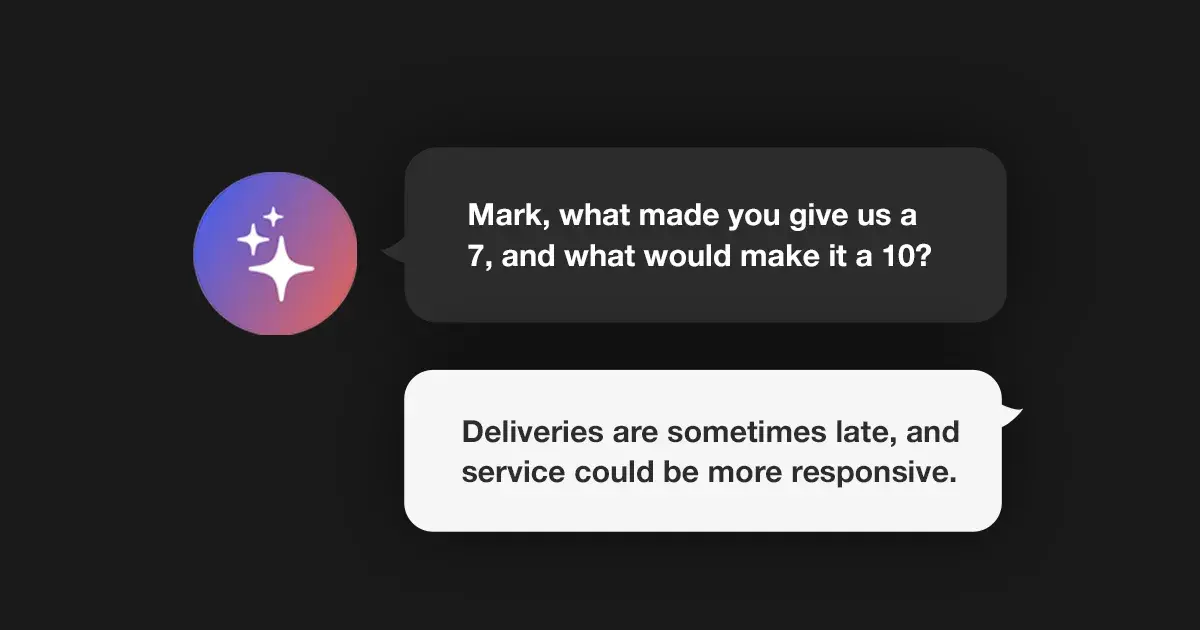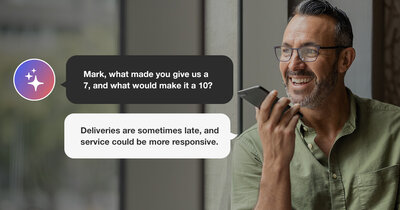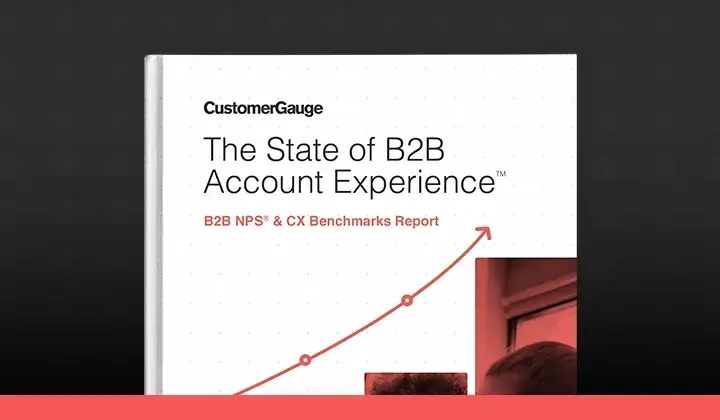As a Customer Success Manager, I’m in a position where my clients ask me many questions. How to configure something with their surveys? What the best way to get the data they want to report on is? But  the most common question I get asked has actually has nothing to do with the clients themselves or their usage of our solution. And that question is some variation of “How am I doing compared to others in my industry?” or “What is the average NPS score I should be expecting to receive?” or “Is my NPS score good?”
the most common question I get asked has actually has nothing to do with the clients themselves or their usage of our solution. And that question is some variation of “How am I doing compared to others in my industry?” or “What is the average NPS score I should be expecting to receive?” or “Is my NPS score good?”
If you’ve asked me that question, you probably remember that the first thing I respond with is always along the lines of “The most important thing is how you improve your own NPS score – not how it compares to others. There’s no such thing as a “good” or “bad” NPS score.” We’ve already written about some of the various factors that can cause NPS scores to vary greatly due to different circumstances, even within the same industry. Our CEO has also helped spread some cautionary words about the topic.
They make some really good points, including:
- You may not know how those benchmarks were constructed
- NPS can vary greatly based on a wide variety of factors aside from industry
- How your survey is constructed can cause variations in your NPS score
- It’s hard to verify the accuracy of many benchmarks
But despite all that, everyone still asks about benchmarking; so I’d like to go even further and dive into some additional complications with focusing too much on comparing yourself to others.
Consider the following metaphor: Your daughter Lana asks you for a tablet because her friend Pam just got one from her parents. Is this reason alone enough for you to buy Lana the tablet? I would hope not. Pam’s parents might have bought her a tablet for any number of reasons. Maybe they give Pam whatever she wants and spoil her. Maybe Pam has a learning disability and needs the tablet to help her out with that. Maybe Pam lied to Lana and actually bought the tablet with her own money, not her parents.
The point is, you don’t know why Pam’s parents bought her the tablet, and you also shouldn’t really care. It has no bearing on whether or not you decide to purchase Lana a tablet - you should be making that decision based off your own circumstances - and not allowing Pam’s parents child-raising decisions to be dictating your own.
Moving past the metaphor and into real world examples, let’s consider how Fred Reichheld showed that NPS correlated with future growth. He argued that NPS was a better predictor of future growth than other loyalty/satisfaction metrics though this has since been heavily disputed. Fred Reichheld did however not show a perfect correlation between NPS and future growth for which reason a company with a score of 20 may actually perform better than another company with a score of 35. Since the purpose of NPS is to create future growth, it is better to compare real growth figures and the various growth parameters like retention, referral values and up/cross-sales figures. The point of doing NPS is to understand how loyalty affects these growth parameters and how better scores affect them. Who cares about a higher NPS if it doesn’t create growth?
An example is referrals. Even if two different companies have the same number of promoters, they may not get the same number of referrals. E.g. a study showed that only 43% of promoters actually referred PowerPoint whereas an amazing 96% of promoters referred Dropbox. Dropbox’s referral program included a known viral element where people could earn more storage space if they referred someone.
Most people have been told at some point in their life to worry about themselves and not others. The same overall principle applies to NPS scores. Say your “industry average” NPS is 20. Should you be patting yourself on the back if you get a 35 with your initial results? I’d caution against doing this. In addition to the examples regarding Fred Reichheld and Powerpoint vs. Dropbox referrals in the paragraphs above, there could be other factors. What if the industry average is only a 20 because all your competitors have terrible customer service? Does getting a 35 mean you have better customer service than your competitors? Not necessarily. You should instead concentrate your time and effort on finding out why you got that 35 (which CustomerGauge can help you do). Find out what things you can do to maintain positive customer experiences, as well as what you can improve upon your 35.
Now consider the opposite scenario. Say your “industry average” NPS again is an 20. Should you be panicking because you only have a -15? Again, not necessarily. It’s not the industry average you need to be worrying about. What if your industry average is so high because all your competitors decided to start offering their product at a 75% discount in order to boost their NPS scores? They might fold in a matter of months due to unsustainable business models...you never know! Even worse, what if your competitors are fudging their NPS numbers just to make you panic! Once again, the message above applies. Figure out the reason behind your own score - and worry less about how your competitors got their scores. There’s nothing you can do about their scores anyway.
The benchmark you should be striving for isn’t to be 10 or 15 points better than your competition or your industry average. It should be to constantly strive for internal improvement on your numbers from previous months and years. So no, a score that’s 10 or 15 points better than your competition is not “good.” But if you come to me with a score that’s 10 or 15 points better than what you got last year - then I will tell you, “YES, your NPS score is good!”



